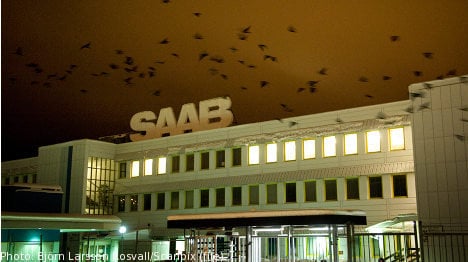Saab’s former owner GM said it objects to the sale of technology licences for the Saab 9-3, 9-5, and 9-4X models to China’s Pang Da and Youngman, which together have agreed to purchase Saab for €100 million ($142 million) from current owners Swedish Automobile.
“Although General Motors is open to the continued supply of powertrains and other components to Saab under appropriate terms and conditions, GM will not agree to the continuation of the existing technology licenses or the continued supply of 9-4X vehicles to Saab following the proposed change in ownership as it would not be in the best interests of GM shareholders,” GM spokesperson James Cain said in a statement.
The 9-4X is based on GM’s Cadillac SRX, and the two models share looks, an assembly line and key components.
Speaking with the TT news agency, Cain said the decision to withhold the licenses was final.
“This wasn’t an easy decision for us to make. And it’s final,” he told TT.
According to Cain, the decision stems from concerns about allowing GM technology to fall into the hands of competitors.
“This concerns both China and other markets,” he said.
Eddie Chen, head of the China division for Sweden’s investment promotion agency, Invest Sweden, has been deeply involved in Saab’s negotiations with Pang Da and Youngman.
But he was unaware that GM might say no to the sale of its technology licenses.
“I haven’t heard anything because GM and Pang Da and Youngman haven’t been in contact with one another yet,” he told TT.
He was also uncertain what affect GM’s refusal to sell the licences might have on the sale of Saab.
“We have to go back to the drawing board,” Saab chair Victor Muller told the Reuters news agency.
He suspected that GM’s joint ventures in China are the reason for the US automakers objections.
“It’s clear that GM is concerned that their technology will be used in China to compete with their joint ventures,” Muller said to TT.
Anette Hellgren, chair of the Saab branch of the Unionen labour union, wants to know immediately from Saab management what Monday’s news from GM means for the planned sale of Saab.
“I’ve got the impression that there are several steps about which decisions need to be made in this day and that this is one of them,” she told TT regarding the sale of technology licenses to the Chinese firms that want to take over Saab.
According to Hellgren’s understanding of the deal, the sale of the licenses to which GM is now objecting, is a condition of carrying out the deal.
On Saturday GM indicated it may block the sale of Saab to two Chinese companies over concerns about its supplier relationships with Saab but that it was “very much open” to additional discussions about the deal.
“Given the time that has passed since the transaction was announced, we felt it necessary to communicate our position at this point in time,” Cain told AFP at the time.
According to the preliminary business restructuring plan, Youngman would take over 60 percent of Saab Automobile, while Pang Da would acquire 40 percent.
Two new subsidiaries would then be created in China, one for manufacturing and one for distribution.
The Chinese firms also intend to supply to €610 million ($855 million) in long-term funding for Saab.
Saab would also receive €50 million in bridge financing from Pang Da and Youngman, as well as tap a €63 million credit line with the European Investment Bank (EIB).
The Chinese companies have said they prepared to invest more than €2 billion up until 2017 in an effort to return Saab to profitability.
Projections called for Saab to sell 35,000 to 55,000 cars in 2012 and increase sales to 130,000 to 150,000 cars by 2014.



 Please whitelist us to continue reading.
Please whitelist us to continue reading.
Member comments